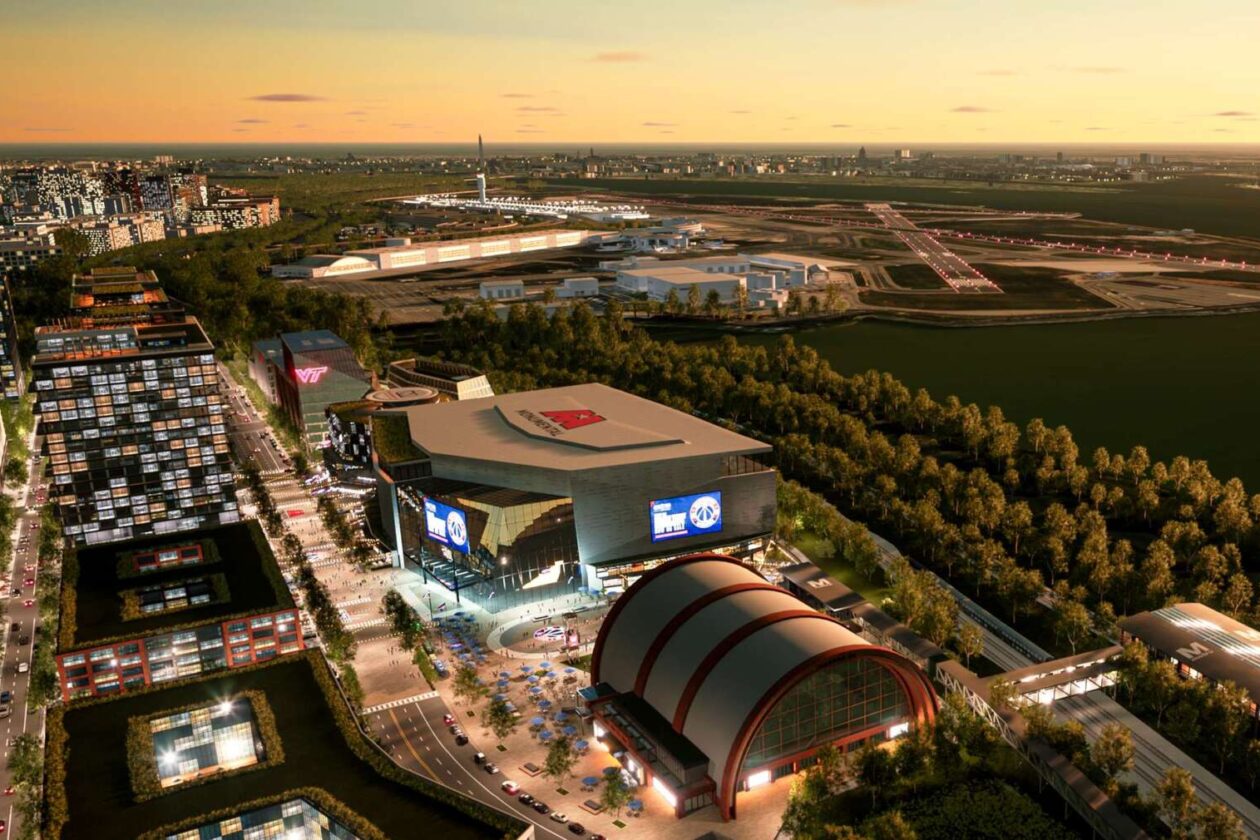
The deal to bring the Washington Capitals and Wizards to Alexandria’s Potomac Yard is officially dead, and the developer says suggestions that an arena could be built in Tysons instead were the final nail in the coffin.
Alexandria City officials revealed yesterday (Wednesday) that they had ended negotiations with developer JBG Smith, Wizards and Capitals owner Monumental Sports & Entertainment, and other stakeholders for a stadium in the proposed Potomac Yard Entertainment District. About an hour later, Monumental owner Ted Leonsis and D.C. Mayor Muriel Bowser announced that the two professional sports teams will stay at Capital One Arena in Chinatown after all.
After joining Leonsis and city leaders in December to tout the Wizards and Capitals’ planned move across the Potomac River, Virginia Gov. Glenn Youngkin lamented that “personal and political agendas” at the state level torpedoed a significant economic opportunity, while the city expressed disappointment in how discussions between Youngkin and the General Assembly unfolded.
However, JBG Smith CEO Matt Kelly pointed to a different culprit, claiming that “special interests” seeking to combine a sports arena with a casino in Tysons had “complicated and ultimately blocked” the Potomac Yard negotiations.
Despite our best efforts, this project was unable to get a fair hearing on its merits with the Virginia Senate. It is now clear that our efforts may have been complicated and ultimately blocked, in part, by special interests seeking to move the Monumental arena to Tysons Corner and to combine it with a casino. The Washington Post and other outlets have reported on this scheme and the hundreds of thousands of dollars, enormous sums in Virginia politics, of political contributions associated with it — a large portion of which were directed to key senate leaders. When one follows the money, the implications are deeply troubling for Virginia and for the future of transparency in economic development pursuits, especially those that seek certainty through the now damaged MEI legislative process.
The Washington Post reported on Sunday (March 24) that Senate Majority Leader Scott Surovell (D-34), hopeful Fairfax County casino developer Comstock CEO Christopher Clemente and political consultant Ben Tribbett, who counts both Surovell and Comstock as clients, had raised the idea of moving the Wizards and Capitals to Tysons instead of Alexandria with Monumental executives.
According to the Post, Leonsis and the other Monumental executives quickly rejected the proposal, which also didn’t appeal to Youngkin.
State Sen. Dave Marsden (D-37), who patroned the ultimately postponed bill to make Fairfax County — specifically a site in Tysons along Metro’s Silver Line — eligible for a casino, says he was never involved in “any serious talk” about combining the casino with a Monumental arena. The idea was “casually talked about” during the General Assembly’s session, which ended on March 9, but he never viewed it as a legitimate possibility.
“I think that was a last-minute thing people threw out there,” he told FFXnow. Read More

A McLean resident has pleaded guilty to spending federal COVID-19 relief funds intended for his home business on personal expenses, including gambling and real estate payments.
Mehdi Pazouki, 65, pleaded guilty in federal court on Friday (Feb. 23) to defrauding the Small Business Administration of approximately $455,000 in loans created to help businesses survive during the pandemic, according to the U.S. Attorney’s Office for Eastern District of Virginia.
The office says Pazouki applied for funds from the Paycheck Protection Program (PPP) and Economic Injury Disaster Loan (EIDL) program between August 2020 and August 2021 that he claimed would be spent on Systems Integration Services Inc., the IT consulting company he ran out of his McLean home.
“He actually intended to, and did, use [the money] to fund his gambling at area casinos, pay down personal debt, and purchase real estate,” the U.S. Attorney’s Office said in a news release.
More from the Department of Justice:
Within days of receiving his first EIDL disbursement, Pazouki spent over $27,000 in EIDL money at Hollywood Casino in Charles Town, West Virginia. Pazouki also used the PPP and EIDL money for down payments on two different real estate properties, to pay off his personal credit card debt, and to fund his personal investment account. Pazouki also falsely represented to the SBA in loan forgiveness applications that the PPP money had been used for legitimate business expenses, which resulted in the complete discharge of the loans.
Pazouki could face up to 20 years in prison when he’s sentenced on May 24, though the press release notes that “actual sentences for federal crimes are typically less than the maximum penalties.”
Attorney General Merrick Garland announced last August that the Justice Department had recovered over $1.4 billion in COVID-19 relief funds that were allegedly obtained through fraud by over 3,000 defendants.
The PPP and EIDL programs were both created by the CARES Act in 2020 to assist small business owners during the lockdowns and stay-at-home orders implemented early in the pandemic. Up to $659 billion was available for PPP loans, and $224 billion in EIDL grants and loans were approved through February 2021, according to the U.S. Government Accountability Office, which found that at least 3,000 loans totaling about $156 million went to ineligible applicants.
The PPP program ended on May 31, 2021, while the Small Business Administration shut down its application portal for EIDL funds in May 2022.
Photo via Chris Liverani on Unsplash
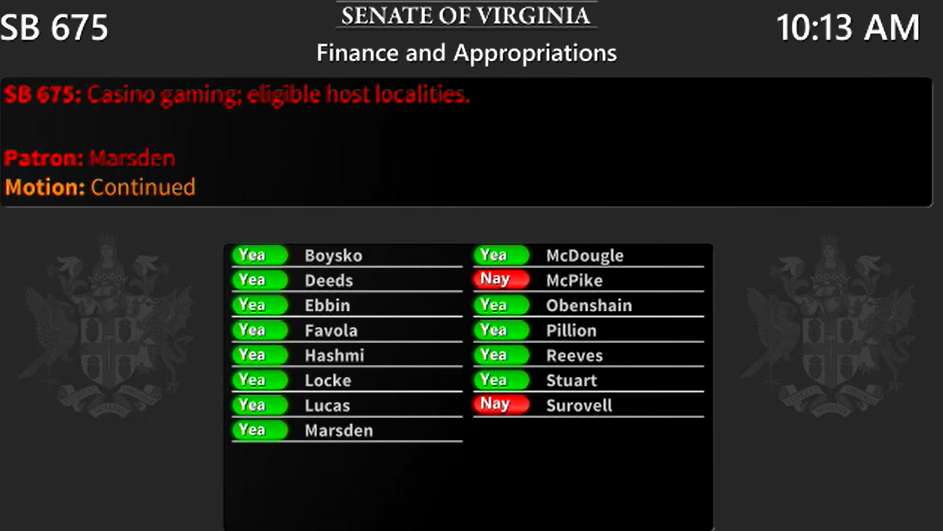
Consideration of legislation to make Fairfax County eligible for a casino has officially been put on hold until 2025.
The Virginia Senate Finance and Appropriations Committee voted 13-2 this morning (Tuesday) to continue Senate Bill 675 to next year, affirming a recommendation made last Thursday (Feb. 1) by its resources subcommittee.
The vote came after a failed effort by state Sen. Jennifer Boysko (D-33) to more forcefully table the bill from Sen. Dave Marsden (D-35), who has advocated for a casino in Tysons specifically as a potential revenue boost for both Fairfax County and the state.
Urging her fellow committee members to pass the bill by indefinitely, Boysko says “hundreds and hundreds” of local community members had voiced opposition to a possible casino at a town hall she and other representatives of the Reston and McLean areas held on Saturday (Feb. 3).
The town hall drew over 400 people, according to Boysko’s office. The senator told FFXnow that she has also received “thousands and thousands of letters and emails and calls from constituents” opposed to a casino.
“We’ve heard [the opposition] all year long,” Boysko said at the committee meeting, recalling a doctor’s appointment she had last summer where the doctor told her that he didn’t want a casino in the area. “…I ask my colleagues to respect the will of the neighbors I have.”
In addition to emphasizing the opposition from area residents, Boysko and Sen. Barbara Favola (D-40) warned that Marsden’s bill sets a new precedent for determining where casinos can be built in Virginia.
The five localities currently eligible for a casino — Portsmouth, Danville, Bristol, Norfolk and Richmond — all requested that authority from the General Assembly, as has Petersburg, which is being considered as a replacement for Richmond after the voters in the state capital rejected a referendum twice.
Though they didn’t officially oppose the legislation, Fairfax County leaders have stressed that they didn’t ask for the county to be added to the list of eligible casino hosts and weren’t consulted about the proposed development.
SB 675 also deviates by laying out criteria that limits potential sites for a casino to somewhere in Tysons near a Silver Line Metro station outside the Capital Beltway. Comstock is reportedly eying the abandoned Exclusive Automotive Group lot at 8546 Leesburg Pike, according to Marsden.
“This would set a precedent that is very different from our current framework, and I don’t want to go down that path,” said Favola, who represents Arlington.
However, Marsden argued that a casino would bring in substantial new revenue at a time when offices are struggling and Metro needs more funding from Virginia, D.C. and Maryland to avoid potentially drastic budget cuts.
The envisioned casino development from Comstock would also include a conference center, hotel and concert venue, he noted.
“There’s no reason right now for people to come to Fairfax County,” Marsden said. “…We don’t get visitors, we don’t have tourism.” Read More
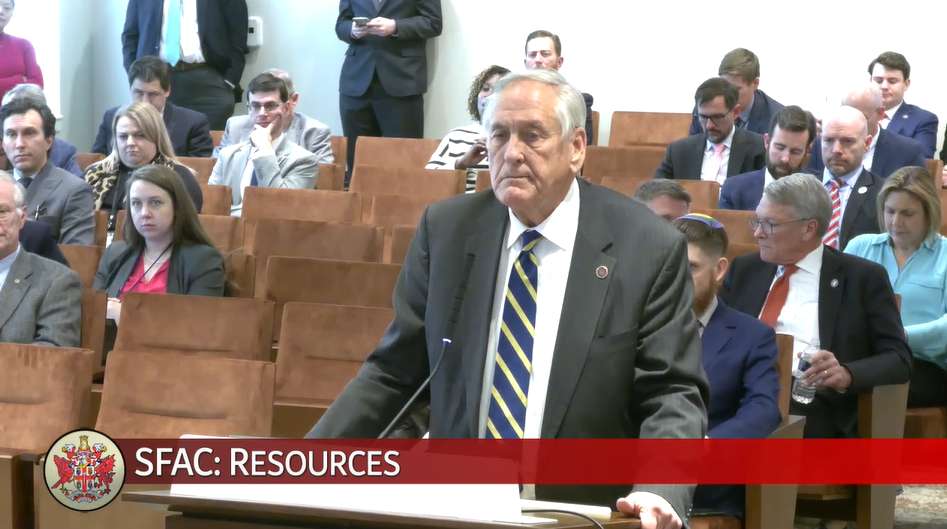
(Updated at 11:30 a.m. on 2/2/2024) The push to allow a casino in Fairfax County has stalled — at least for 2024.
A Virginia Senate subcommittee voted this afternoon (Thursday) to “continue” Senate Bill 675 until next year so a more in-depth analysis of the potential casino can be conducted.
The postponement came despite apparent support for the proposal by Sen. L. Louise Lucas (D-18), who chairs the Senate Finance & Appropriations resources subcommittee and quipped that she’s been called “the casino queen” during the meeting.
Sen. Dave Marsden (D-35), who patroned the bill that would make Fairfax County — specifically Tysons — eligible for a casino, previously told FFXnow that he was hopeful it would pass, noting that Lucas, who also chairs the overall finance committee, “likes [the] bill.”
However, some senators, led by Creigh Deeds (D-11), questioned whether the county had been sufficiently studied as a possible host locality. Tyler Williams, a subcommittee staffer, confirmed that the Joint Legislative Audit & Review Commission looked at Northern Virginia as part of a casino gaming study in 2019, but Fairfax County wasn’t being considered individually at the time.
The study estimated that a Northern Virginia casino would employ 3,200 workers and bring in an additional $155 million in tax revenue to the state, including about $100 million that Virginia residents are currently spending at out-of-state casinos, such as MGM National Harbor in Maryland.
“I would like to see some updated projections, because I would like to keep this bill alive,” Lucas said before the subcommitte voted.
Marsden first introduced legislation that would allow a casino along the Silver Line last year, but the bill was quickly withdrawn to allow for more research. Patch reported in September that the proposal would be revived during the 2024 General Assembly session, with developer Comstock targeting the Wiehle-Reston East Metro station area as a possible site.
However, after Reston Association and other community groups began to marshal opposition to the impending legislation, Marsden filed a bill on Jan. 17 with criteria that narrowed the potential locations to Tysons. The bill advanced to the Senate Finance and Appropriations Committee from a general laws committee on Jan. 24.
Marsden has argued that a casino could give Fairfax County a new source of tax revenue with the office market in flux, and he maintained at today’s meeting that the bill is intended to give the county the authority to make its own decision. If the bill eventually becomes law, a voter referendum would still be required to authorize a casino.
“I think it’s time to send this to the local government [to] make their own decisions about this. There’s plenty of local control here,” Marsden said.
The Fairfax County Board of Supervisors hasn’t adopted an official stance on the legislation, but members made their reservations clear in a legislative committee meeting last Friday (Jan. 26) and in a letter that Chairman Jeff McKay sent to General Assembly leaders.
In addition to questioning whether the county would actually reap the revenue benefits touted by casino proponents, the supervisors stressed that they hadn’t requested the authority for an establishment and hadn’t been consulted by Marsden or the prospective developers.
According to Marsden, Comstock’s vision includes a conference center, arts venue and hotel, along with a casino.
Hunter Mill District Supervisor Walter Alcorn told the resources subcommittee that he’s “a strong no” on the possibility of a Fairfax County casino. Vienna Mayor Linda Colbert and Herndon Town Councilmember Naila Alam also stated that they oppose SB 675.
“I’m very happy that the subcommittee members listened to the community and the people elected to represent them,” Alcorn said in a statement, thanking Colbert and Alam for joining him in testifying. “It is a big victory for everyone who cares about good government!”
Marsden says he’s “disappointed” by the outcome, while that the vote still keeps the bill alive until 2025.
“No one has any other ideas to give Fairfax County a brighter revenue future,” he told FFXnow.
Board of Supervisors Chairman Jeff McKay praised the resources subcommittee’s vote as “the right thing” to do, hopefully enabling the community to learn more about the proposed casino project.
The Senate finance committee will formally vote on whether to accept the subcommittee’s recommendation next Tuesday (Feb. 6).
“We only learned many of those details in dribbles as the bill was sorted out and after it was introduced, and we still do not have all of the information we need,” McKay told FFXnow. “The community deserves to know all the details of a major proposal like this, details such as what is actually included in the proposal, the proposed site, potential revenues, community impacts, traffic impacts, and more, before the General Assembly considers it.”
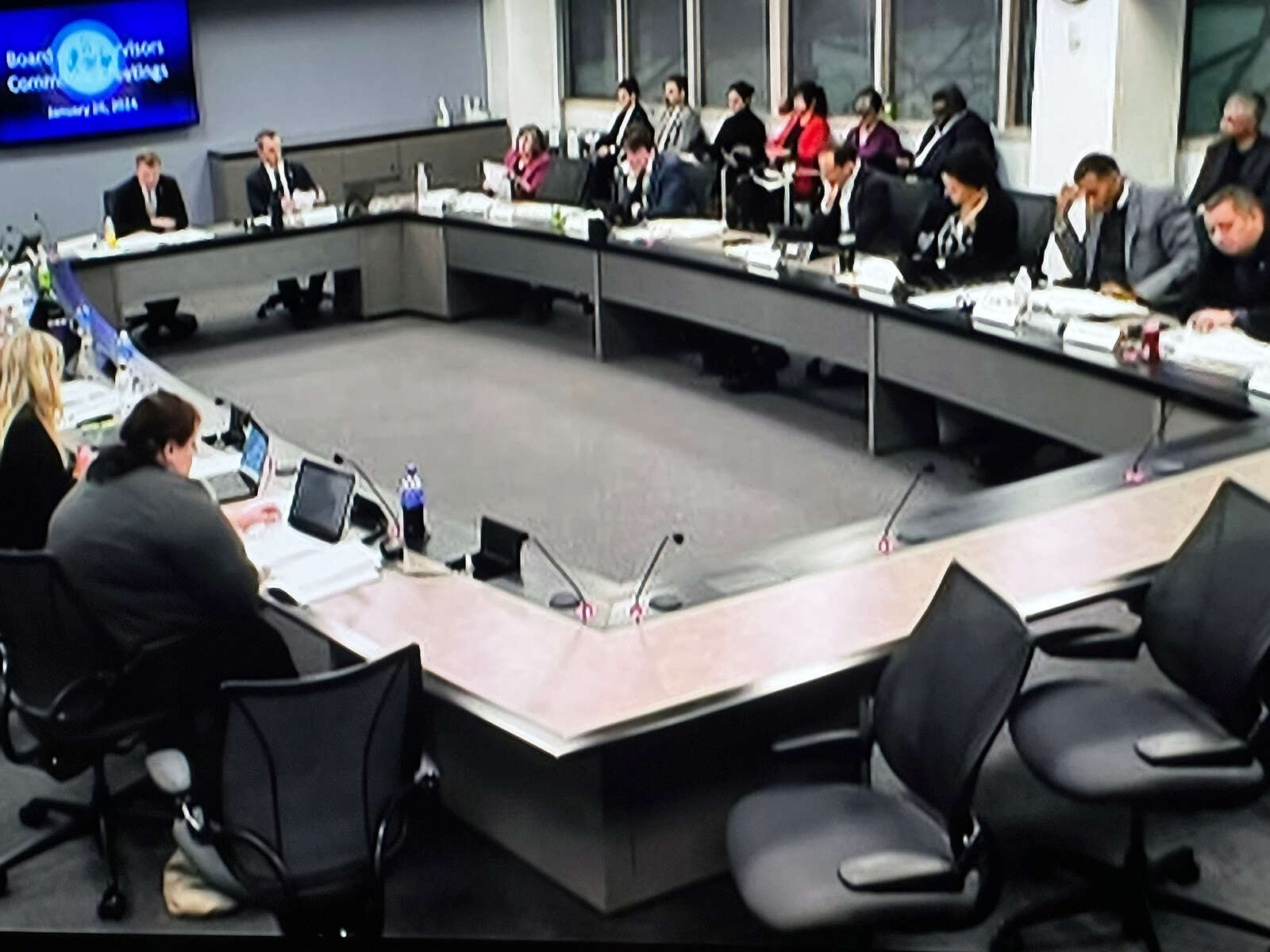
Updated at 10:40 a.m. on 2/1/2024 — The bill to make Fairfax County eligible for a casino has been assigned to the Virginia Senate Finance and Appropriations’ resources subcommittee, which is scheduled to meet at 4 p.m. today (Thursday).
Earlier: Local opposition to the prospect of a casino in Fairfax County continues to escalate.
Though they stopped short of officially denouncing it, county supervisors expressed skepticism of the bill being debated in the Virginia State Senate and aired frustrations about not being consulted about the potential development at a legislative committee meeting on Friday (Jan. 26).
In a letter generally supported by his fellow board members, Board of Supervisors Chairman Jeff McKay noted that the county, on principle, doesn’t usually oppose legislation that supports local authority, but this is one authority it didn’t request — unlike the cities currently eligible for a casino.
“I think what our focus needs to be on at this point in time is reminding folks we didn’t ask for this. This concept was derived in a vacuum,” McKay said at the committee meeting. “I saw the bill only after the General Assembly began their session, and we need to protect ourselves in the event this bill is approved by making sure that we put out there what our concerns are on this.”
Sent to House of Delegates Speaker Del. Don Scott and the Senate and House majority and minority leaders, the letter highlights a lack of engagement with county officials and the community by “stakeholders and the patron of this legislation.” Senate Bill 675 was filed by state Sen. Dave Marsden, who has confirmed that the developer Comstock proposed the casino, first in Reston and now in Tysons.
It also questions whether a casino would actually boost local commercial tax revenues as Marsden and other proponents have suggested.
Virginia taxes casino operators at a rate of 18 to 30%, depending on how much they make. That money goes into a Gaming Proceeds Fund run by the state treasury, which gives the equivalent of a 6-8% tax to each host locality. That means over 70% of the gaming tax revenue would go to the state, not Fairfax County, according to McKay.
“It’s a really bad financial deal,” McKay said, likening the revenue split to a school funding formula that county leaders argue shortchanges localities. “…We get hosed, we are the state’s ATM, and the financial model here at a minimum would have to improve dramatically before I would consider any referendum as a result of this bill.”
The four Virginia localities that have approved casinos — Portsmouth, Danville, Bristol and Norfolk — “were literally bankrupt” and in need of new revenue and an economic revitalization, McKay said. Petersburg, which might replace Richmond as a host city after the voters in the state capital rejected a casino referendum twice, has similarly struggled.
In contrast, Tysons continues “to thrive,” McKay’s letter says, despite the impact of the pandemic and remote work on offices. The area even has an emerging “entertainment district” in Capital One Center with a concert venue and hotel — facilities reportedly included in the casino development.
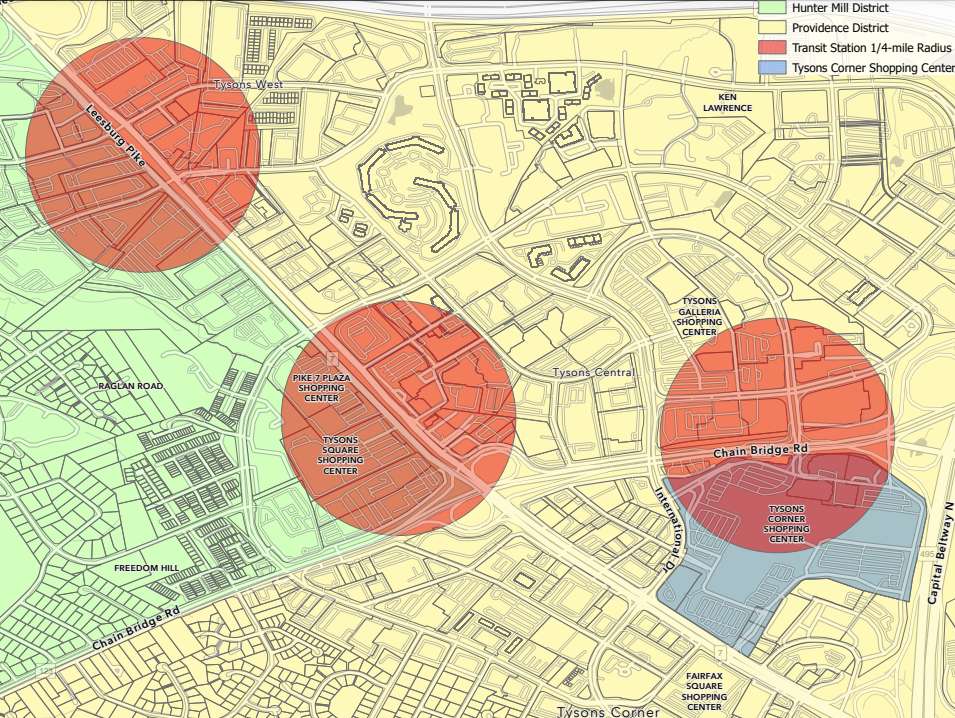
While more arts and convention space “is very much needed” in Tysons, the county’s lack of involvement in the casino talks and the revenue-sharing arrangement are concerns, said Providence District Supervisor Dalia Palchik, who represents most of Tysons.
Stressing that her office hasn’t seen any development plan, she praised the “balanced approach” of McKay’s letter, which doesn’t take a stance on Marsden’s bill but notes that “in its current form [it’s] likely to result in strong community opposition to a future referendum.” Read More
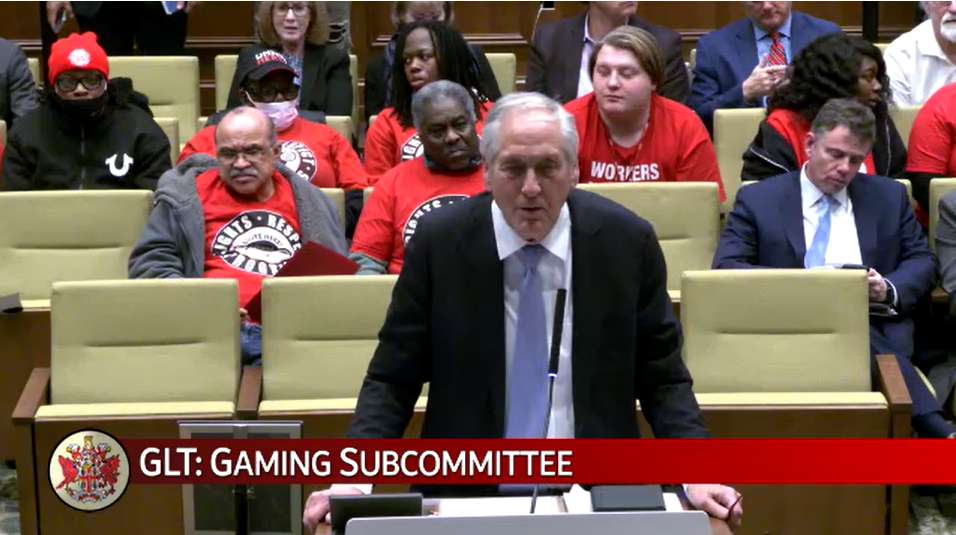
Updated at 6 p.m. — The Senate General Laws and Technology Committee voted 10-4 with one abstention this afternoon to report Senate Bill 675 to the finance committee, which is next scheduled to meet on Tuesday, Jan. 30.
The committee will review the bill and could potentially kill it, but state Sen. Dave Marsden, who’s on the committee, says he’s confident it will pass.
Earlier: A bill that could allow a casino in Fairfax County will get a full state Senate committee hearing today (Wednesday) after just barely advancing out of a subcommittee yesterday.
The subcommittee on gaming was evenly split on state Sen. Dave Marsden’s proposal to make the county the sixth locality in Virginia eligible to host a casino, joining Bristol, Portsmouth, Danville, Norfolk and — for now — Richmond.
As promised, Marsden (D-35) put forward a substitute bill yesterday that narrowed the potential sites for the future casino down to Tysons, excluding Reston in response to lobbying by local residents and civic organizations like Reston Association.
Senate Bill 675 now states that the casino should be within two miles of a “regional enclosed mall” that’s at least 1.5 million square feet in size, a change from the initial version filed last week that said the site should be in two miles of a “major shopping destination.”
Other criteria were unchanged, including that it must be a quarter-mile from a Metro Silver Line station, part of a mixed-use development and outside of the Capital Beltway (I-495).
Though an exact location isn’t mentioned in the legislation, Marsden confirmed to FFXnow last week that developer Comstock is targeting the former Aston Martin and Bentley dealership near the Spring Hill Metro station for an entertainment complex with a casino, concert venue and conference center.
Before the subcommittee, which was chaired by Sen. Jeremy McPike (D-29), Marsden made the case that revenue from the casino could help “resurrect Fairfax County’s economy” from a stagnant office market that has squeezed the commercial tax base.
Tysons in particular is seeing a 20% office vacancy rate, and foot traffic to office buildings is just 70% of pre-pandemic levels, according to a market study that the Tysons Community Alliance released last summer. Marsden noted that placing a casino on the Silver Line would make it accessible to visitors in D.C. and Maryland as well as to the west in Loudoun County.
“It’s actually closer than MGM [National Harbor],” Marsden said. “It would be easy for people to come, and we’re also not just envisioning a casino here. What we’re talking about is a conference center that does not exist in Fairfax County. We’re also talking about a hotel and concert venue.” Read More
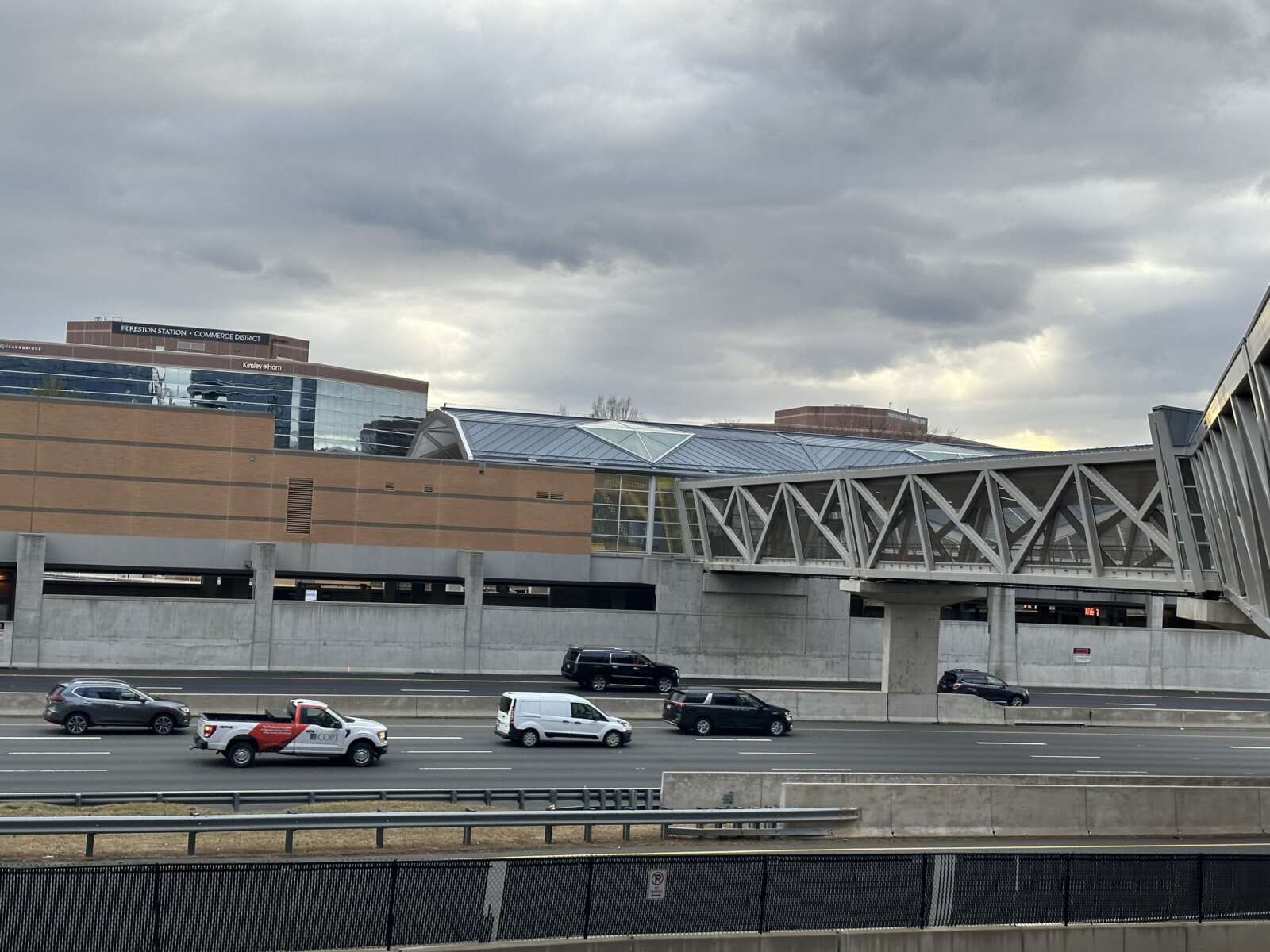
(Updated at 9 a.m. on 1/23/2024) Reston will be dropped from consideration for a future casino in state legislation filed last week by state Sen. Dave Marsden (D-35).
In a letter to members, Reston Association CEO Mac Cummins confirmed that Marsden agreed to exclude Reston as a possible location for a casino. Instead, Tysons — specifically an abandoned auto dealership — is the target of the controversial project.
“This is due significantly to the outreach from RA and its membership and we thank Senator Marsden for meeting with us, listening to the concerns of our community and taking action that addresses those concerns,” Cummins wrote in the statement.
Since news of the proposal surfaced late last year, community opposition has mounted against a future casino in Reston. Reston Patch reported in October that Reston Station developer Comstock had its eyes on a casino near the Wiehle-Reston Metro Station.
Reston Association’s board of directors issued a statement last fall opposing the potential casino, urging its members to advocate against Marsden’s impending bill before the General Assembly convened for its 2024 session on Jan. 10.
Hunter Mill District Supervisor Walter Alcorn has also expressed opposition to the possibility of a casino.
“I want to reiterate that I am against a casino in Hunter Mill District and will continue to work to defeat any legislation that could lead to what I consider a bad outcome for our community,” Alcorn wrote in a newsletter to constituents last week.
The proposal was assigned to a Senate subcommittee on gaming last week and appears on its docket for tomorrow (Tuesday).
Cummins described the news as a “positive turn and one that shows our legislators are indeed listening to the views of the community.” Reston Association says it will continue monitoring the bill as it moves through the legislature.
FFXnow previously reported that a former Aston Martin and Bentley dealership in Tysons is the likely location for the future casino.
If the bill passes, Fairfax County voters would still have to approve a referendum to allow a casino. Virginia currently has five localities eligible for a casino.
This story has been updated to better reflect the status of the casino bill, which hasn’t officially excluded Reston. However, state Sen. Dave Marsden has said he’ll introduce an amendment that will take Reston out of consideration.
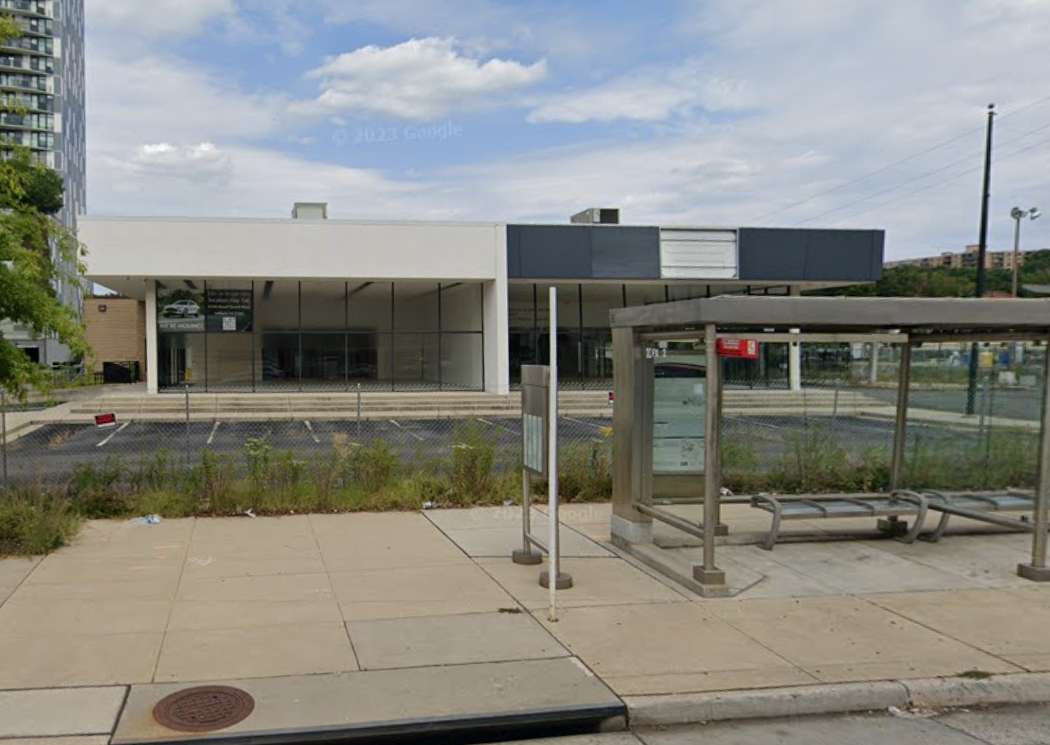
The proposal to permit a casino in Fairfax County has honed in on one specific site: a former Aston Martin and Bentley dealership in Tysons.
Site criteria for the potential gaming establishment emerged yesterday (Wednesday), when state Sen. Dave Marsden’s long-awaited/dreaded bill was officially published online, just two days before the Virginia General Assembly’s filing deadline for the 2024 session.
As first reported by NBC4, the legislation would add Fairfax County to the list of localities eligible for a casino as long as the facility is:
- Located within one-quarter of a mile of an existing station on the Metro Silver Line
- Part of a coordinated mixed-use project development
- Outside of the Dulles International Airport flight path
- Within two miles of a major shopping destination with at least 1.5 million square feet of gross building area
- Outside of the Capital Beltway (I-495)
Those conditions limit possible sites to Tysons, dropping Reston from consideration after residents there prepared to fight the incoming legislation.
However, Marsden confirmed to FFXnow that he plans to amend the bill, titled Senate Bill 675, to further narrow the proposed scope to the abandoned Exclusive Automotive Group lot at 8546 Leesburg Pike near the Spring Hill Metro station.
Marsden didn’t specify what criteria will come with the amendment, but he says it will be added before the bill is presented to a committee. The legislation was referred yesterday to the Senate Committee on General Laws and Technology, which hasn’t scheduled a meeting on it yet.
The site of a fire in April 2023, the dealership has been vacant since the company relocated its Aston Martin and Bentley franchises to a new showroom that opened in Ashburn in spring 2022.
The property was sold by the Cherner Development Group to Tysons Development LLC — a joint venture of the Clemente Development Company and Khaled Juffali Co. — for over $57 million on Feb. 4, 2020, per Fairfax County records. The sale involved multiple parcels totaling about 7.5 acres — all part of the planned View at Tysons development.
Approved by the county in 2019, The View at Tysons would transform the Route 7 and Tyco Road intersection with over 3 million square feet of mixed-use development, including the D.C. area’s tallest office tower and a performing arts center.
Marsden has said the casino could be part of an entertainment district that may also include an arts venue. He confirmed the project was proposed by Reston Station developer Comstock, which was previously reported to be pushing for a casino near the Wiehle Metro station.
“In my view, this casino is needed to ensure further revenue for Fairfax County to fund schools and other vital services due to the decline in commercial real estate revenue and increases in costs for Metro and other county obligations,” Marsden said, adding that broadening the commercial tax base would “take pressure off” of residential real estate and car taxes.
Local reactions to the possibility of a casino have generally ranged from skeptical to hostile. The McLean Citizens Association, which includes Tysons in its coverage area, sent a letter to state legislators last week opposing the impending bill, while Providence District Supervisor Dalia Palchik told FFXnow yesterday that there are still too many questions around where revenue would go and how the operator and site will be selected.
In addition to providing location criteria, SB 675 would require Fairfax County to consider a prospective operator’s labor practices, including payment of prevailing wages to construction contractors and hospitality workers and labor peace agreements with any unions. The operator would need to enter into an agreement with employee labor groups before it’s submitted to Virginia Lottery for approval.
If the bill passes the General Assembly and gets signed into law by Gov. Glenn Youngkin, Fairfax County voters would still have to approve a referendum to allow a casino. Virginia currently has five localities eligible for a casino, but Richmond may be removed from that list after voters rejected a referendum two times.
Image via Google Maps
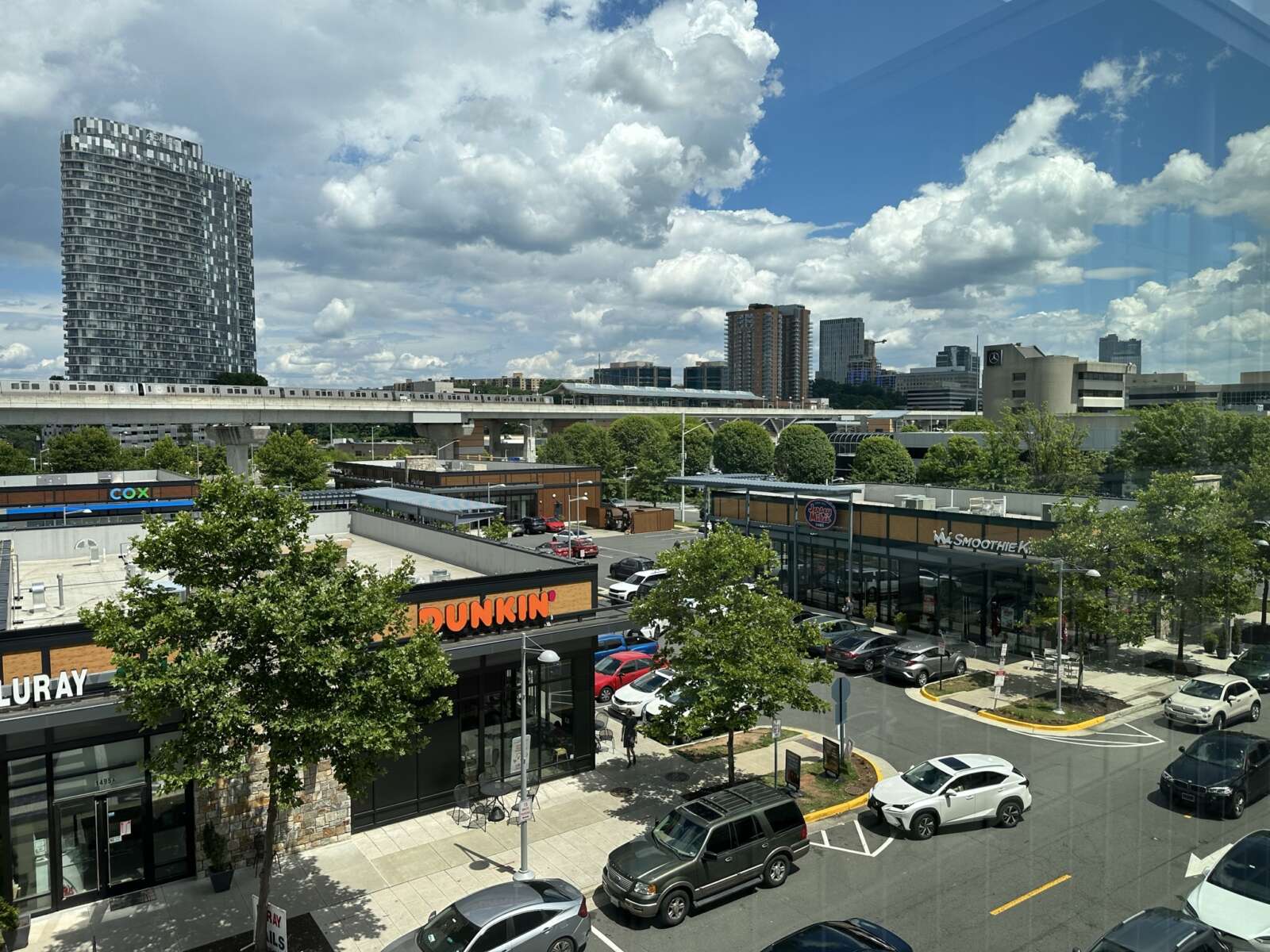
(Updated at 2:30 p.m.) The new, much-debated state bill to allow a casino in Fairfax County has arrived with some limited but critical changes from its previous iteration.
Though the bill doesn’t appear to be available online yet, NBC4 reports that state Sen. Dave Marsden (D-35) has filed legislation that would add Fairfax County to the small list of Virginia localities eligible for a casino.
According to NBC4, the bill closely resembles a proposal that Marsden submitted and quickly withdrew last year, but the new iteration includes even more specific criteria for the potential casino site:
The eligible host locality described in subdivision A 6 shall be limited to a proposed site for a casino gaming establishment that is (i) located within one-quarter of a mile of an existing station on the Metro Silver Line, (ii) part of a coordinated mixed-use project development, (iii) outside of the Dulles airport flight path, (iv) within two miles of a major shopping destination containing not less than 1.5 million square feet of gross building area, and (v) outside of the Interstate 495 Beltway.
The addition of proximity to a “major shopping destination” as a requirement narrows the possible locations down to Tysons, specifically a “defunct auto dealership on Route 7,” Marsden told NBC4.
That rules out the possibility of a Reston casino. Patch reported in October that Reston Station developer Comstock was hoping to build a casino near the Wiehle Metro station, a proposal that drew strong objections from Reston Association and the general community.
Arguing that Fairfax County needs to diversify its commercial tax base, Marsden has said he sees Tysons as a more appropriate site, envisioning the casino as part of an entertainment district that could include a performing arts venue and a conference center.
In 2022, Comstock sought an amendment to Fairfax County’s Comprehensive Plan that would allow a residential and retail development to replace the Koons Chevy and Chrysler dealerships at 2000 and 2050 Chain Bridge Road near Route 7. The proposal didn’t advance, since county planners determined that an amendment wouldn’t be needed.
It’s unclear if that location is the one that Marsden has in mind, since those dealerships are still in operation. The Priority and Sheehy auto dealerships on Leesburg Pike (Route 7) near the Spring Hill Metro station closed up shop last summer, potentially setting the stage for redevelopment.
NBC4 reports that an unidentified, “interested” developer would like to build “a casino paired with a large convention center, hotels, restaurants, office space and residences.”
The Tysons Community Alliance, which released a strategic plan for Tysons in December that includes increased capacity for large gatherings as a priority, says it has no comment on Marsden’s casino proposal.
Hunter Mill District Supervisor Walter Alcorn, whose district includes the Koons dealership site, has expressed opposition to a casino on Metro’s Silver Line, though his focus in the past has been on Reston in light of Comstock’s rumored interest.
Providence District Supervisor Dalia Palchik, who represents other parts of Tysons, says her office hasn’t received any project proposals. In the fall, she told FFXnow she’s open to discussing any proposal brought to her office but was skeptical a casino will materialize, since even if Marsden’s bill is signed into law, it would have to be approved by voters in a referendum.
In a new statement, Palchik says she still has reservations about the proposal, though she supports “increasing local authority in both land use policy and revenue diversification.”
“There are still too many questions that exist around where the income would go and how a location and provider would be selected,” she said. “I have not received any land use proposals, and the site selection and land use processes are not something that are decided at the General Assembly level. This bill was also not requested at the county level. We know that the market has shifted and we continue to review the big picture for the future of commercial and residential real estate, but this specific proposal has not yet provided the necessary data, impact, or outreach to our offices nor to the community.”
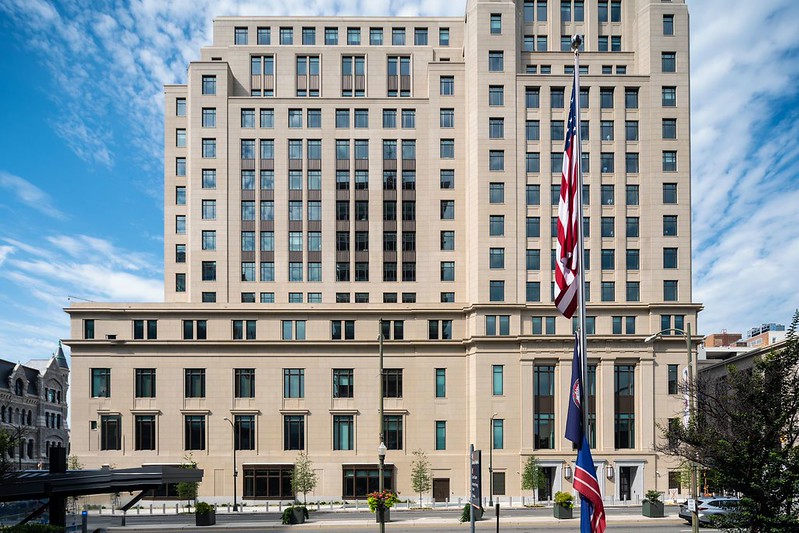
Opposition continues to mount against the possibility of a casino in Fairfax County.
With the Virginia General Assembly kicking off its 2024 legislative session tomorrow, the McLean Citizens Association has come out against a bill expected to be filed soon by state Sen. Dave Marsden, who has proposed adding Fairfax County to the list of localities where a gaming casino could be permitted.
Described as an “unofficial town council” for residents of the greater McLean area, the MCA’s board of directors voted last week to send a letter to the county’s delegates and state senators expressing its opposition to the prospective bill, a stance also adopted by Reston Association.
“Many of our members and residents have contacted MCA Board members to express their opposition to allowing casinos to be operated in Fairfax County,” MCA President Linda Walsh said in a statement. “MCA is watching this closely.”
Sent on Monday (Jan. 8), the letter acknowledges that the MCA can’t comment in detail on the legislation, since it hasn’t been made public yet.
However, developer Comstock is reportedly seeking to build a casino near the Wiehle Metro station in Reston. Marsden has argued that Tysons would be a better fit, suggesting the facility could be part of an entertainment district with a performing arts venue and a conference center.
Citing a need for the county to diversify its commercial tax base with the office market still struggling to recover from the pandemic, Marsden submitted legislation last year that would’ve opened the door for a casino in Fairfax County along Metro’s Silver Line. The bill was quickly withdrawn.
Though he doesn’t represent Reston or Tysons, Marsden serves on the senate’s finance and appropriations committee, which handles budget and tax-related legislation. It will be chaired this year by Sen. L. Louise Lucas (D-18).
Marsden told FFXnow on Dec. 28 that his new bill will be filed within “the next two weeks.” The filing deadline is Jan. 19.
Even if the legislation passes through the General Assembly and gets signed into law by Gov. Glenn Youngkin, a voter referendum would still be required to officially authorize a casino in Fairfax County. The establishments have only been approved in five Virginia cities.
MCA’s full letter to the county’s General Assembly delegation is below:
Dear Fairfax County Delegation to the State Senate and House of Delegates:
The McLean Citizens Association (“MCA”) has recently become aware of intentions to introduce legislation in the upcoming session of the Virginia Assembly that would amend the Code of Virginia, Title 58.1 Chapter 41 in a way that would allow a gaming casino to operate in Fairfax County. Among other suggested sites, proponents of this effort have named Tysons, the majority of which lies within the MCA’s general membership area, as a potential location for a casino.
Since the bill has not yet been submitted in the Assembly, MCA is not able to comment on it in detail at this time. However, many members of MCA are concerned about this initiative. Accordingly, the MCA Board has voted to express its opposition to legislation that would allow a gaming casino in Fairfax County.
Regards,
Linda Walsh
MCA President
Photo via Virginia House of Delegates/Flickr

